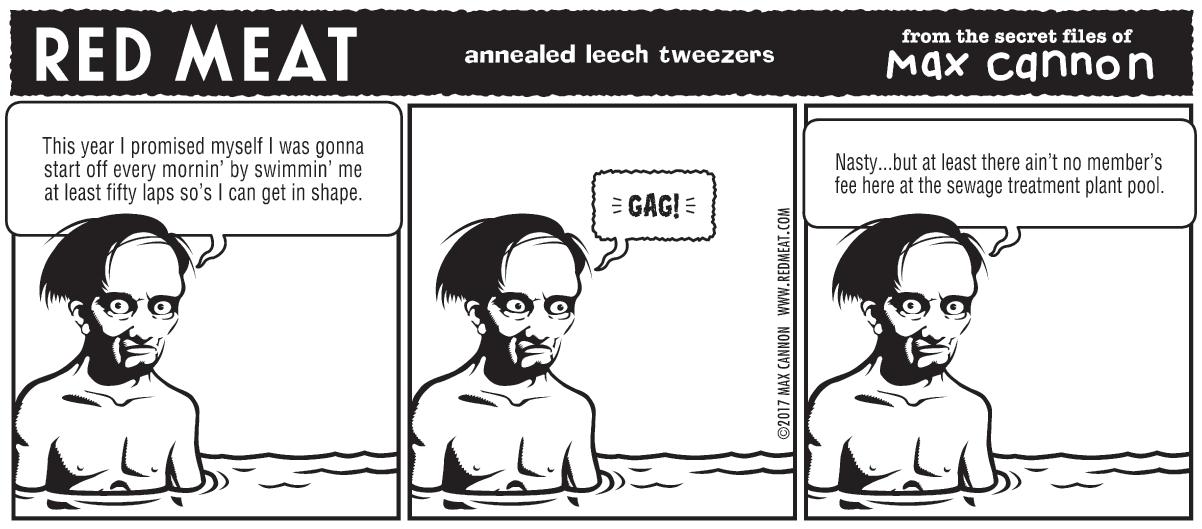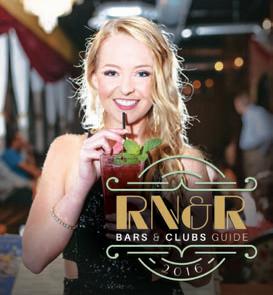
3 minute read
Advice Goddess
from Feb. 2, 2017
Get off my yawn!

Advertisement
I’m a 61-year-old guy who’s been married four times. I love the security and acceptance of marriage, but after several years, either my wife du jour or I will get bored, and we’ll agree to move on. Clearly, I like being a husband, but I do a poor job of remaining one. Can I change that?
So, you just want the security of marriage with all the excitement of dating somebody new—which is kind of like wanting a latex hood and ball gag that are also a comfy old pair of slippers.
Although, no, you can’t have it all, you might manage to have a good bit of it all—the security and the excitement—by bringing in the neurochemistry of the chase when you’re in the cuddly-wuddly longterm attachment stage.
Social psychologist Arthur Aron and his colleagues did a brain imaging study of couples who were still passionately in love after being married for 10 to 29 years. Surprisingly, the results looked a lot like their previous results on couples who’d just fallen madly in love, with intense activity in regions of the brain “associated with reward and motivation.”
The neurotransmitter dopamine is a central player in this reward circuitry. Though dopamine is still widely known by its outdated nickname, the “pleasure chemical,” current research by neuroscientist Kent Berridge suggests that it doesn’t actually give you a buzz (as opioids in the brain do). It instead motivates you to do things that might—like eating cake, smoking a doob and making moves on that girl with the hypno-hooters.
Dopamine-secreting neurons are especially on the alert for what researchers call “novel rewards”— any yummy, sexy, feel-good stuff you haven’t tried before. Neuroscientist Wolfram Schultz finds that “unpredictable rewards” may be even three or four times as exciting to us as those we’re used to.
Aron and his colleagues note that “if partners experience excitement” from, say, “novel and challenging activities” that they do together, “this shared experience can reignite relationship passion by associating the excitement with the relationship.”
Obviously, these should be unanticipated good experiences—like alternating who plans date night and surprising each other with the week’s event. You might also try to delight your spouse with small unexpected gestures every day. Ultimately, you should find bringing in surprise much more fun than simply hoping the relationship won’t die.
by AMY ALKON
Wishful sinking
The girl I’m in love with has a boyfriend. She and I have already fooled around, but she can’t bring herself to break up with this guy. She insists she doesn’t want to lose me and promises we’ll date eventually. I’m confused. Do you think she’s playing me?
It’s nice to hope for the best about people—but still put a note, “tofu-kelp casserole,” on that foilwrapped plate of brownies you stuck in the break room refrigerator.
However, especially when our ego is involved, we’re prone to believe the best about people, because of what psychologists call “optimism bias.” This is a form of selecto-vision that leads us to overestimate that things will turn out wonderfully for us and underestimate the likelihood of our experiencing bad stuff, like being in a flaming car wreck or a flaming car wreck of a relationship. In short, we believe that bad things happen to other people. For example, that cheater we’re in love with is only cheating because the other dude’s such a fuckbuckle, not because she has the ethics of a dust mite.
Because optimism bias is ego-protecting, understanding that we’re susceptible to it typically isn’t enough to dig ourselves out. What might help you, however, is telling yourself your story, but about some other girl and guy. Then advise that guy on his prospects. For example: Yes, here’s a woman you can trust completely to be faithful—whenever she’s trapped, totally alone, 2,300 feet below ground in a Chilean coal mine.
Got a problem? Write Amy Alkon, 171 Pier Ave., No. 280, Santa Monica, CA 90405, or email AdviceAmy@aol.com (www.advicegoddess.com).
Don’t miss out on advertising to RN&R readers in these upcoming issues.
StOrYBOOK
RN&R’S FIRST FAMILY GUIdE OF 2016 IS ALL ABOUT ThE WAYS FAMILIES ShARE ThEIR STORIES
Chapter 1
Secret Recipe • Page 2
Chapter 2
Learning Potential • Page 5
Chapter 3
Lost in translation • Page 7
A SPECIAL SUPPLEMENT TO RENO NEWS & REVIEW • FEBRUARY 11, 2016
FAMILy GuIdE
FEbRuARy 23
Like a virgin page 5
Insobriety test page 8
All abroad! page 12
DIY craft page 16
Gaming drinks page 21
In the Biggest Little City, you’ll find plenty of opportunities to engage in some fringe drinking
a special supplement to the reno news & review • march 3, 2016










